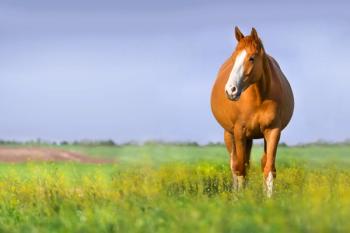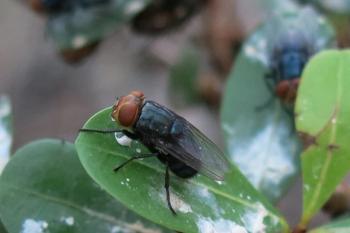
Another MRLS theory suggested
Lexington, Ky.-A new "hybrid" theory has recently surfaced suggesting a blend of caterpillars, molds and the right timing during gestation might have caused the springtime late-term abortions and early fetal losses, called mare reproductive loss syndrome (MRLS), according to The Horse Interactive.
Lexington, Ky.-A new "hybrid" theory has recently surfacedsuggesting a blend of caterpillars, molds and the right timing during gestationmight have caused the springtime late-term abortions and early fetal losses,called mare reproductive loss syndrome (MRLS), according to The Horse Interactive.
Dr. Bruce Webb, an entomologist at the University of Kentucky, believes"frass" is the missing link to the MRLS puzzle.
He says the contributions of "frass," the technical term forcaterpillar excrement, a mixture of urine and feces, comprise the triggerfactors for the losses.
Caterpillars feed on wild cherry tree leaves containing levels of cyanide;an earlier theory suggests horses reacted to cyanide found in the frass.
"The way I look at this is that you need to look at every link inthe chain," Webb says. "When I start looking at the cyanide hypothesis- there's no doubt that there's cyanide in the leaves. The caterpillarseat those leaves, but cyanide is detoxified in the foregut of the caterpillar.
Webb says the original theory "didn't really fit" what wasknown about insect physiology.
But what Webb and Dr. Kyle Newman, a nutritional microbiologist of VentureLaboratories, discovered was that mycotoxins, previously suspected as MRLSculprits, might be involved in the caterpillar theory. Scientists have saidmycotoxins are released by molds under stressful climatic conditions likethe hard freeze that hit in April.
Webb and Newman have shown that frass supports the growth of molds whichmay produce mycotoxins known to cause reproductive problems, and are collectingcaterpillar egg masses to hatch in the laboratory this winter.
Newsletter
From exam room tips to practice management insights, get trusted veterinary news delivered straight to your inbox—subscribe to dvm360.




